Hugh Cornwell - Interview
by John Clarkson
published: 22 / 10 / 2006
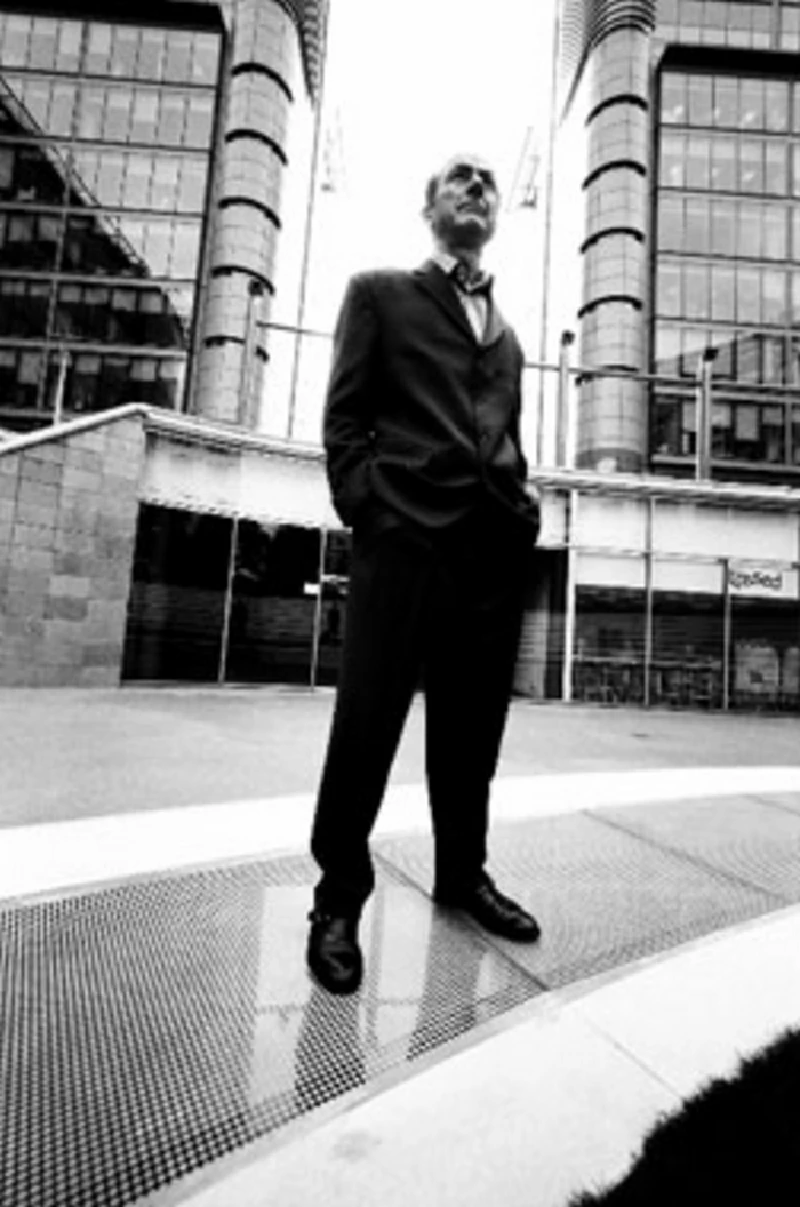
intro
Former Stranglers frontman Hugh Cornwell has recently published his autobiography 'A Multitude of Sins'. With both a three CD new live album out, and also a single CD which features some of its highlights, he chats to John Clarkson
In his 2004 autobiography ‘A Multitude of Sins’, Hugh Cornwell says in its opening chapter that the two questions he gets asked the most are ‘Why did you leave the Stranglers ?’ and ‘When are you going to get back with the group ?’ It is perhaps inevitable that Cornwell should get asked those two questions. Throughout the long time that he fronted the band, the Stranglers were a regular part of the British music public’s consciousness. Over the course of the sixteen year period that Cornwell was in the Stranglers, from when they first formed in 1974 in Surrey out of the remnants of his previous group Johnny Sox until 1990 when he left the band the day after playing a sell-out gig at London’s Alexandra Palace, they recorded ten studio albums, ‘Rattus Norvegicus’ (1977), ‘No More Heroes’ (1977), ‘Black and White’ (1978), ‘The Raven’ (1979), ‘The Meninblack’ (1981), ‘La Folie’ (1981), ‘Feline’ (1982), ‘Aural Sculpture’ (1984), ‘Dreamtime’ (1986) and ‘10’ (1990). They were always a controversial group, and Dave Greenfield’s dark keyboards, Jean-Jacques Burnel’s heavy bass, Cornwell’s sardonic lyrics and their black clothing and brittle relationship with the media won them both admirers and detractors in equal measure. There was a drugs bust in late 1979 and Cornwell, who was found guilty of possession, spent five weeks in Pentonville Prison in 1980. A riot at a concert after a power failure in Nice later that year lead to the whole band this time being incarcerated and Cornwell and the rest of the group spending a further 10 days in jail. Strippers danced on stage with them at an open-air gig at London’s Battersea Park, and that and the lyrics of some of their songs, and especially ‘Bring on the Nubiles’, one of the tracks on ‘No More Heroes’, also lead to them also being accused of both misogyny and sexism. As well as the ten albums, they also released twenty Top 40 singles, including 1982's surprisingly mellow ‘Golden Brown’, which found the up-until-then usually abrasive Stranglers experimenting with a harpsichord. An ill-disguised paean to heroin, it escaped a radio ban and, their biggest seller, shot to No.2 in the charts. As the Stranglers progressed through the 80’s, their music began to sound increasingly languid. Their singles included two unremarkable covers of the Kinks' 'All of the Day and All of the Night' and ? and the Mysterians' '96 Tears', both of which added nothing to the originals, and much of their own material on ‘Dreamtime’ and ‘10’ was similarly bland and forgettable. Cornwell explains in both ‘A Multitude of Sins’ and also again on his website www.hughcornwell.com that he left the Stranglers because he felt that "no chances were being taken any more” and “the band had become an institution which meant all the danger and risk had gone.” He is also dismissive in ‘A Multitude of Sins’ of the possibility of a reunion. Their break-up was particularly acrimonious, and, while that has not stopped many other groups short of money and missing the limelight from getting back together , Cornwell, and for that matter his former band mates Burnel, Greenfield and drummer Jet Black (who have gone to record another six albums as the Stranglers, the first five with Cornwell’s replacement Paul Roberts , and, after Roberts amicably left earlier this year, the latest one, the well-received ‘Suite XVI’ with Burnel and additional guitarist Baz Warne on vocals) have all continued to musically evolve. Hugh Cornwell recorded his first solo album, ‘Nosferatu’, in 1979, and followed this with a second album, ‘Wolf’, in 1988. In the time since he left the Stranglers, he has gone on to record another four solo albums, ‘Wired’ (1993), ‘Guilty’ (1997), ‘Hi Fi’ (2000) and ‘Beyond Elysian Fields’ (2004), and, as he was quick to point out to Pennyblackmusic, has also been involved in various other projects as well. While he maintains some of his previous spiky edge, the now clean-living Cornwell is far more likely to be found in an art gallery ( ‘Henry Moore’, the last track of ‘Beyond Elysian Fields’, pays tribute to the famous British sculptor) or in the baroque Spanish town of Cadiz which has been visiting for many years (and, which he compares again on ‘Beyond Elysian Fields’ to a long-term relationship with a woman) than involved in the controversies of the past. Like his great hero Bob Dylan (whom he also sings about on ‘Beyond Elysian Fields’ on the tongue-in-cheek ‘24/7’), Cornwell’s career is at a renewed creative peak. As well as the Delta blues-orientated ‘Beyond Elysian Fields’, possibly his best album to date, and ‘A Multitude of Sins’, he has also recently released ‘People, Places and Pieces’, a triple live CD recorded at the Islington Academy last year, and ‘Dirty Dozen’ , a single CD which features twelve of its highlights. Cornwell is currently touring Europe with both CDs on what he has dubbed the ‘Dirty Dozen’ tour. He spoke to Pennyblackmusic on a rest day on the British leg of it about his recent career. PB : You have just released a triple CD, 'People, Places and Pieces', which compiles together three live shows which were recorded last year. Why did you choose to release those particular recordings ? HC : I have not had a live recording out for some time. The last one, ‘Mayday’, was so long ago that it was done as a four piece. I have been playing in a trio now with Winston McGilvray who plays drums and Steve Lawrence who is the bassist for a good five years now. We have played together for so long without any changes in the line-up that I thought that that in itself was a good reason for making a recording. We also had the three nights in the same place at the end of a tour, so it made sense to do the live recording there. We could get three completely different sets recorded and, as I have played with those guys for so many years, we were able to expand on the number of song titles and to add on a lot more songs from both the Stranglers catalogue and my own catalogue than those we already had been playing on the other dates of the tour. PB : 'People, Places and Pieces' has forty five tracks, but you whittled things down to twelve of these of this for the single 'Dirty Dozen' CD. Was it hard deciding which tracks you were going to put on 'Dirty Dozen' and which ones you were going to keep for 'People, Places and Pieces' ? HC : It was so hard I didn't do it (Laughs). My manager did it. I wouldn’t have known where to begin, but he's very good at doing things like that. In doing it he wanted some Stranglers favourites, but he also wanted to touch upon as much of my solo catalogue as possible, and so he took one song from each one of my solo records. PB : Why is 'People, Places and Pieces' only being made available through mail order, whereas you can buy 'Dirty Dozen' in High Street record shops ? HC : I think the last triple live CD that I saw in the shops was Led Zeppelin's 'How the West Was Won', which was a fabulous album, but I'm not Led Zeppelin. It is very difficult to get a shop chain to stock a triple live album, but we were able to get a single one in. PB : You said in 'A Multitude of Sins' that you think that anyone who has lasted five years in the music business had done pretty well, yet you have lasted over thirty years. When you started out in the 70's with the Stranglers, and before that with Johnny Sox, did you ever anticipate over thirty years on that you would not only still be playing gigs, but also writing some of the best songs of your career ? HC : No, I would never have predicted any of those things. I thought I would be walking around on a zimmer at my age. PB : Why do you think you have had such durability ? HC : A lot of it is luck. When I say luck,that suggests fatalistic things which you have got no control over. I believe, however, that you can create your own luck. You get certain choices and certain opportunities and, then depending upon which decisions you make, you can actually create the atmosphere for good fortune to happen. I was lucky enough to be able to bring about that atmosphere with some of my decisions. PB : You released ten studio albums over a thirteen year period with the Stranglers. There have often been three or four year gaps between your solo records, and in fact since you left the Stranglers there have only been four solo studio albums. Why is that ? HC : That's not actually an accurate statistic. When I left the Stranglers, I did an album called 'CCW' which was a studio album. I also did an album called 'Sons of Sheba' which was a studio album, and I also did an album called 'Footprints in the Desert' which was another studio album, so in fact I have done seven studio albums. There have been three live albums, four in fact with this one. I would concede, however, that there have been less albums released, and that they don't get released as often. There's one every four years or so. The reasons behind that are down basically to practicalities. I have, for example, a new studio ready to record. I have got the songs, but this live album has come out and we're intending to take it around the world with a live show. It makes no sense to put out a new studio album right now, so we've got to put that on the back burner for the moment. We have not got even time to record it before next summer I think, so it won't be released at the earliest until this time next year. A lot of it is down to practicalities. PB : You mentioned these three albums, 'CCW', 'Sons of Sheba' and 'Footprints in the Desert'. What were they ? HC : When I first left the Stranglers, I continued writing with a writer from Nashville called Roger Cook that I had been put together with by my publishing company. He was part of Cook and Greenaway, the very famous songwriting team from the 60's. I think after Lennon and McCartney they were the next most successful. He used to come over periodically from Nashville and was keen to write with people, and I started writing with him even before I left the Stranglers. Every few months he would come over and we would write a song, and then we had so many of these songs written that I suggested we do a record together. We brought in a third singer-songwriter called Andy West and so we became Cornwell, Cook and West. We all contributed songs to the record. It was a really refreshing change for me to have equal input on a lot of material and to work with other singers as well. That was 'CCW' . 'Sons of Sheba' happened because there was a poet in Ireland called Sex Johnston and I had set one of his poems to music for an arts project. I asked him to send me a selection of his other poems as well. I set some of those to music too and I did all the backing and he spoke the lyrics over my backing tracks. The other one, 'Footprints' in the Sand', was a set of songs that I had recorded in the mid 90's which had never got released because I was out of a publishing deal and out of a record contract. On demand from the fan base we decided to put that out. PB : You left the Stranglers because, to quote you, "no chances were being taken a band anymore" and "all danger and risk had gone". Was there a particular point in hindsight in which you felt things that had become too safe ? HC : No, the thing was that the Stranglers were such a strong-branded entity and their sound had become so branded that I found it a bit limiting. That is part of the reason why I have gone completely the other way. When I first left the Stranglers, I felt with the first few line-ups of the bands that I played with after that that I had to get a keyboard player into it, and then I suddenly realised that I was unnecessarily competing with the sound that I was making. That's why I now play and record as a three piece because I have found there is much more freedom for me in that situation. It's nothing like the Stranglers' line-up was and is. PB : Less is more basically ? HC : Yeah ! PB : Do you have any regrets at all about leaving the Stranglers ? HC : No, none at all. I am quite happy where I am now. I am glad that things are starting to take shape now. I am developing my own sound which is different from the sound that I was involved in. My songwriting is getting better. The new songs are sounding great, and I am just very happy to be getting into other territories now. For a long time I wasn't able to expand into those other territories, but I am getting into those now, and they're very welcoming, so I am pleased. PB : 'A Multitude of Sins' avoids a strict chronological approach . It takes a thematic approach and has chapters with headings like 'Rock 'n' Roll Parts 1 and 2', 'Sex', 'Drugs' and 'Celebrity'. You say in its prelude that you did this to “introduce some elements of surprise” to your reader. Was that to keep things interesting for yourself as well ? HC : No, I approached a few people in the publishing world before I began it and they said the one thing you don't want to do is write a chronological autobiography because if you do there is a chance that people will go into the middle section and not read anything at the beginning or the end. That was a good enough reason for me not to do it that way. PB : You said in an interview after you had written it that there were things that you remembered latterly and which you wish you had pushed in. Could you see yourself ever doing a second volume of autobiography ? HC : Yes, but I would have to have a lot more to report about my latest escapades first I think to do that, because it wouldn't make sense otherwise to me. PB : You said at the launch of ‘A Multitude of Sins’ that you're thinking of writing a novel as well. Is that still the plan ? HC : Yeah, I've just got to find the time really. It's getting increasingly difficult to put aside time to do something like that. I'll have to put aside some time to do it. PB : You recorded 'Beyond Elysian Fields' in New Orleans. It seems a lot less English-sounding than your other albums, and has more of a blues flavour. Do you think that that was something which developed as a natural consequence of you going to America to record the album ? HC : Yeah, I think so. A record will always end up sounding a consequence of where it was made. I am totally against home recording these days because I like the idea that the actual act of recording can take a flavour of where you do it. PB : There is a song ‘Cadiz’ on ‘Beyond Elysian Fields. You get there often. What is your attraction to it ? HC : I am very, very fond of it. My attraction to it is that it doesn’t pretend to be anything at all. It is a functioning, very pretty, very beautifully-located Spanish town, but it doesn’t seem to be self-aware too much. PB : When did you first discover it ? HC : About twenty, twenty five years ago. PB : Do you actually own property there, or is it somewhere that you just go and visit a lot ? HC : I don’t like property. I just like travelling. PB : ‘Beyond Elysian Fields’ also features ‘The Story of Harry Power’. Harry Power was apparently a contemporary of Ned Kelly’s. What was the appeal to you of him ? HC : He was a surrogate father to Ned Kelly. I thought I would abuse my position of power as a songwriter as very few people know about him. Yet he was instrumental and he was the corner stone of the reason why we all know about Ned Kelly because he taught Ned Kelly to become an outlaw. If he hadn’t been there Ned Kelly would have just become another Australian horse rearer. His mother and Harry Power were lovers. She asked Harry to take Ned away and to teach him a trade, but she must have been pretty thick if she hadn't realised that the only trade he was able to teach him was to be an outlaw PB : You said in your book, and you were particularly talking about ‘Bring on the Nubiles’ that you think it is the duty of artists, including songwriters, to draw attention to subjects that we find difficult. Is that something that you still try to do ? HC : Occasionally. I wrote a song about Harry Power, for example, because I wanted to draw attention to him, in the same way that I wrote ‘24/7’ for it, which is a song about Bob Dylan, because I felt that I had something to say about him. PB : You listed some of your heroes in ‘A Multitude of Sins’, and, as well as Bob Dylan, your other musical heroes included the likes of Elvis and Moe Allison . Is there anyone in today’s current crop of bands that you really rate ? HC : There is no one who is a genius that I have come across recently. PB : Is there anyone you like ? HC : I suffer from the problem that my head is so full of old music, music that has gone before, that I find it very difficult to find anything very innovative. That is my problem and I know it is a problem, and it limits my appreciation. PB : Several of your songs have been included in adverts for the likes of Nike shoes, Wonderbra and Vodafone. Is that something which surprises you or does it amuse you ? HC : It amuses me. It doesn’t surprise me. Nothing surprises me in that respect. These songs are part of the public domain. They have become anthems, endemic things, and I can understand it that brands and marketing people want to latch onto these and utilise them to further their own familiarity. It makes sense really. PB : You were the only non Czech artist to be formally invited to perform at the Prague Street Festival to celebrate 15 years of the Velvet Revolution. How did you achieve that honour ? HC : Well, someone there organising it thought that I would be a good choice to have on it. I didn’t do anything to achieve it (Laughs). If Frank Zappa had been alive, he would have been invited. He was big buddies with Vaclav Havel. He was actually given the keys to the city and made an honorary citizen of Prague, so if Frank had been alive he would have been there. PB : Did you have some kind of connection with Prague though before that? HC : I had been there a few times. I had made a video there before the Iron Curtain came down. PB : Which video was that ? HC : It was called ‘Another Kind of Love’, which was one of the singles from the ‘Wolf’ album. I worked with the amazing Czech animator, Jan Svankmeyer, who is something of a genius in clay animation. I went out there four times over a period of about six months while he painstakingly moved my arm an inch in every frame and then made this animation video basically. PB : Out of all the songs you have recorded do you have a particular favourite ? HC : At the moment I am very fond of ‘Cadiz’, just because I like the writing in it. I thought that I had written a good song there. It is the best thing that I think I have written since ‘Golden Brown’ , but there’s more to come. I have got a great new one which I can’t wait to record and we’ll see how that turns out. PB : Does ‘Golden Brown’ remain your favourite Stranglers song ? HC : It was something of an achievement in the sense of the ground that it broke, and it was completely different to anything else that we had done. I wrote it with Dave Greenfield. It was just different. That was why it was groundbreaking. That is why sticks in my mind. PB : You say that it was groundbreaking. Was that in part, to pick up on the point from earlier about tackling difficult subjects, that it was a song about heroin and you managed to get it to No. 2 in the charts ? HC |: No, it’s nothing to do with the subject matter. It’s to do with the fact that it is completely different to anything that we have ever done.. That’s what I mean by groundbreaking, but, even despite that, it became the biggest thing we have ever done, and that’s what is so bizarre about it. PB : You mentioned a new album. When can we see that released ? HC : It has to be recorded first of all and then it has got to be scheduled for release. I can’t really see it being ready until this time next year at the earliest. PB : Do you know where you are going to record it ? HC : Sort of, but I can’t really say at the moment. PB : And finally what other plans do you have for the future ? HC : We have got touring plans with ‘Dirty Dozen’ and ‘People, Places and Pieces’ which we are trying to take around the rest of the world, and we are in negotiations and discussions with various tours and countries to realise that. PB : Thank you. Special thanks to long term Stranglers/Hugh Cornwell fan and musical cohort Gill Pert who provided several questions.
Band Links:-
http://www.hughcornwell.comhttps://www.facebook.com/hughcornwellofficial
https://twitter.com/HughCornwell
Have a Listen:-
Picture Gallery:-
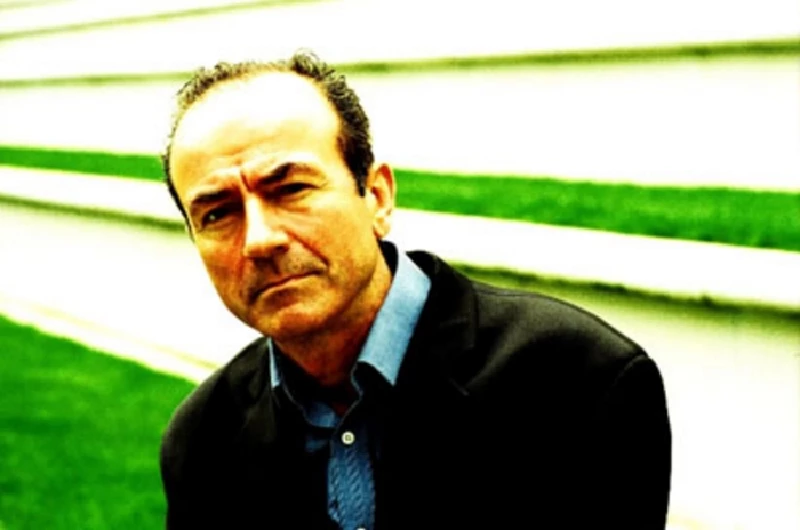
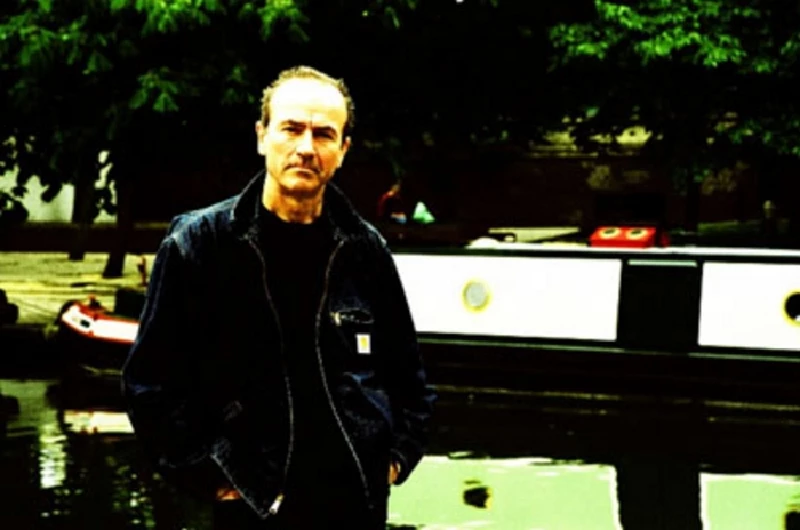
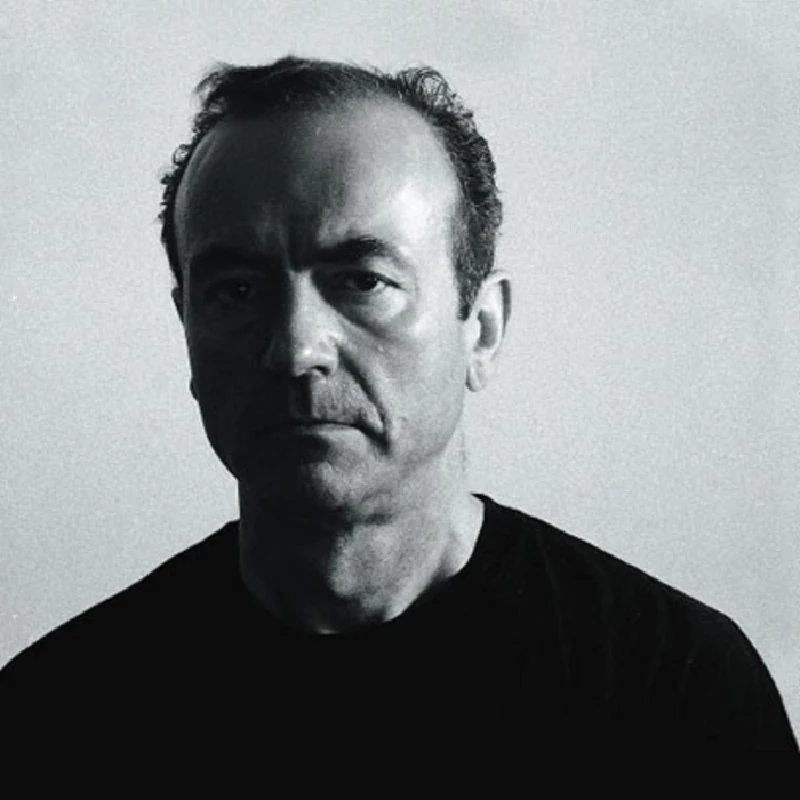
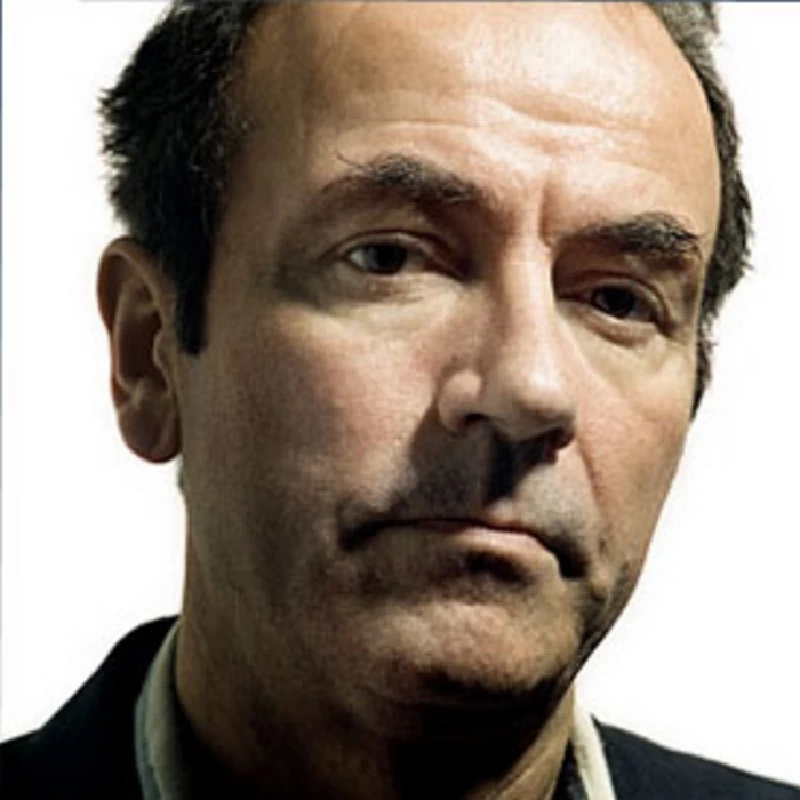
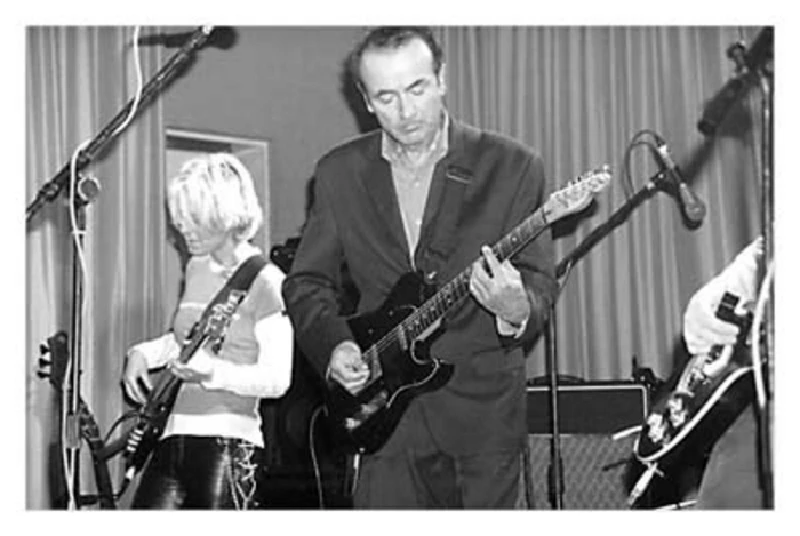
Visitor Comments:- |
| 926 Posted By: Fred strangler Winslow , Canada on 15 Aug 2020 |
|
Although the original sound and music the stranglers were known for was very edgy and artistic. With many great bits and songs , to say that aural sculpture And dream Time were forgettable is just Bullshite. Is there a rule that to be cool one has to be no commercial ??? I played and still do .. along with the older stuff those two albums often BECAUSE as forgettable as they were noted to be , it is these albums that made their talents accessible to family members and friends love their music ALL OF THEIR MUSIC ! It happens that they also Became world and well known prior having been Of cult status ... I know that being “edgy” is code for “ we took lots of drugs and lived spontaneously but those albums are filled with beautiful music rock pop and edgy songs I have patients who are artists ...if it was really about direction and originality they could each have created in parallel and still recorded together as the stranglers period ... it is and always ego and personality Too bad. They are still stuck together now for the musical eons. Might as well jam together ?
|
interviews |
|
Interview (2023) |
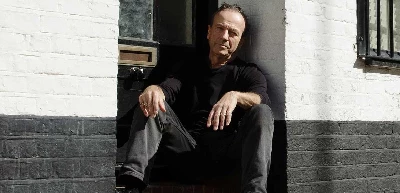
|
| Ex-Stranglers singer/guitarist Hugh Cornwell chats to Eoghan Lyng about his recent ‘Moments Of Madness’ LP and upcoming UK and Ireland shows. |
| Interview (2022) |
| Interview (2015) |
| Interview (2009) |
| Interview (2008) |
live reviews |
|
O2 Academy, Sheffield, 7/5/2023 |
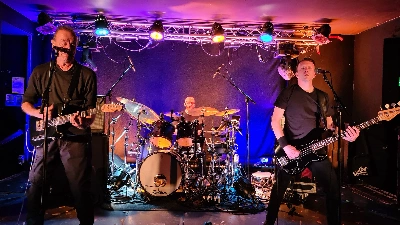
|
| On the road to support his recent ‘Moments Of Madness’ LP the former Stranglers frontman, long since turned solo artist Hugh Cornwell shows no sign of slowing down. |
| Academy 3, Manchester, 27/11/2009 |
photography |
|
Photoscapes (2022) |
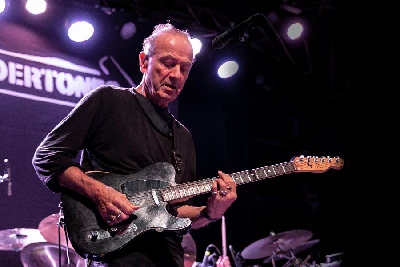
|
| Andrew Twambley takes photographs of former Stranglers frontman Hugh Cornwell at a gig at the Manchester Academy. |
soundcloud
most viewed articles
current edition
Carl Ewens - David Bowie 1964 to 1982 On Track: Every Album, Every SongSimian Life - Interview
the black watch - Interview
John McKay - Interview
Editorial - July 2025
Billie Eilish - O2 Arena, London, 10/7/2025
Armory Show - Interview with Richard Jobson
Hothouse Flowers - Photoscapes
Bathers - Photoscapes 2
Cleo Laine - 1927-2025
previous editions
Trudie Myerscough-Harris - InterviewBoomtown Rats - Ten Songs That Made Me Love....
Pixies - Ten Songs That Made Me Love...
Fall - Hex Enduction Hour
Heavenly - P.U.N.K. Girl EP
Sam Brown - Interview Part 2
Place to Bury Strangers - Interview
Miscellaneous - Charity Appeal
Doris Brendel - Interview
Madness - One Step Beyond
most viewed reviews
current edition
Sick Man of Europe - The Sick Man of EuropeAmy Macdonald - Is This What You've Been Waiting For?
Phew, Erika Kobayashi,, Dieter Moebius - Radium Girls
Blueboy - 2
Lucy Spraggan - Other Sides of the Moon
Davey Woodward - Mumbo in the Jumbo
Philip Jeays - Victoria
Lapsley - I'm a Hurricane, I'm a Woman In Love
Alice Cooper - The Revenge of Alice Cooper
Vinny Peculiar - Things Too Long Left Unsaid
Pennyblackmusic Regular Contributors
Adrian Janes
Amanda J. Window
Andrew Twambley
Anthony Dhanendran
Benjamin Howarth
Cila Warncke
Daniel Cressey
Darren Aston
Dastardly
Dave Goodwin
Denzil Watson
Dominic B. Simpson
Eoghan Lyng
Fiona Hutchings
Harry Sherriff
Helen Tipping
Jamie Rowland
John Clarkson
Julie Cruickshank
Kimberly Bright
Lisa Torem
Maarten Schiethart